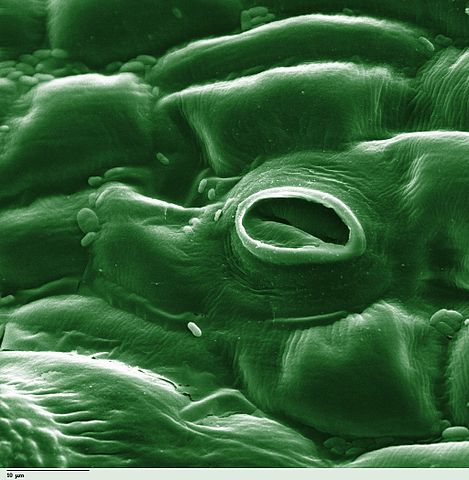
This Garden Vocabulary series seeks to introduce and explain to you — and in many cases, myself — words and terms associated with gardening. Please let me know if there are any terms you would like me to explore. You can leave your ideas in the comments section and we can learn together!
Stoma
“In botany, a stoma (plural stomata) (from Greek στόμα, “mouth”[1]) is a pore, found in the epidermis of leaves, stems and other organs that is used to control gas exchange. The pore is bordered by a pair of specialized [parenchyma] cells known as guard cells that are responsible for regulating the size of the opening. ” — Wikipedia.org
Sometimes, because they don’t move from place to place, we don’t think of plants and trees as truly living things. They just seem to exist in place. Even though they might grow new limbs and new leaves, these happen on such a slow timescale that humans have a hard time understanding how much physical action is happening every moment. If it isn’t the time scale of events that fool us, it is the size of the event. Plants are living — and more importantly for this vocabulary word — breathing organisms who must regulate their physical processes from moment to moment. Trees can’t pick up and move when the sun becomes to hot or more water is needed. Most plants use the stoma in their leaves — which is typically the largest surface area of a plant — to control the movement of gases such as carbon dioxide and oxygen and water between the atmosphere and themselves. They can close to retain water during the hottest day of the year and open them wide at others to bring in more carbon dioxide for aid photosynthesis.
The next time you look at a leaf, try to imagine all these little portal opening and closing as needs dictate and allowing the plant to breathe deep of the world. Here is a microscopic photograph of what stoma might look like if you get get unclose and personal with them.

More information on stoma:
Previously on Garden Vocabulary:


